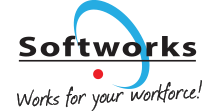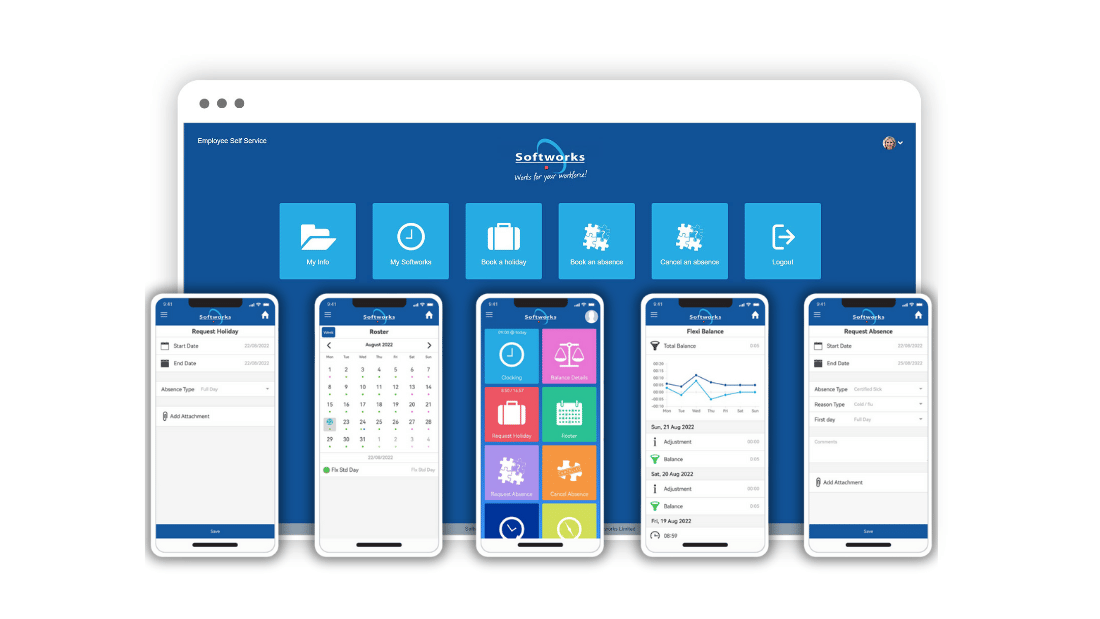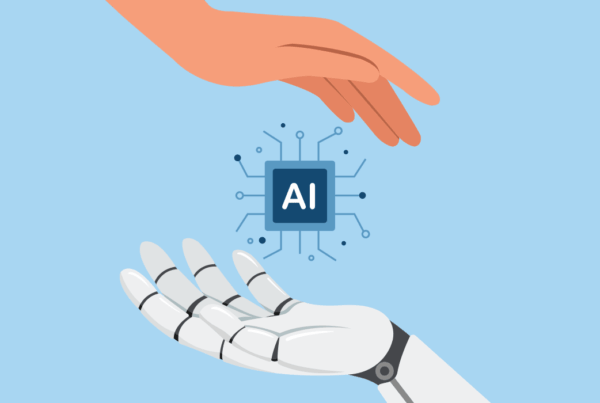One phrase has grown increasingly common in the fast-changing landscape of modern organizations – Employee Self-Service (ESS).
At its core, Employee Self-Service is a transformative concept that places the power of HR management directly into the hands of employees. It’s a shift that not only streamlines HR processes but also empowers individuals within the workforce.
Employee Self-Service, often abbreviated as ESS, is a digital platform that enables employees to take charge of their HR-related tasks and information. It provides a user-friendly interface through which employees can access and manage various aspects of their employment, from clocking in and out to requesting time off and viewing work schedules.
ESS represents a departure from traditional HR processes, where tasks were handled through paperwork, emails, or in-person interactions.
It simplifies HR processes, liberating HR departments from administrative burdens and promoting cost-efficiency, accuracy, and policy compliance. It also empowers employees by granting them control over their work-related data, enhancing transparency and the overall employee experience.
In the following sections, we’ll explore the benefits and features of ESS, showcasing how it boosts productivity, job satisfaction, and organizational efficiency. We’ll also see how Softworks’ ESS solutions align with these principles to create a more agile and engaged workforce.
TABLE OF CONTENTS
The Evolution of Employee Self-Service
Employee Self-Service (ESS) has undergone a remarkable transformation in response to the dynamic needs of modern organizations. As companies continue to adapt to the ever-changing HR and workforce management landscape, ESS has evolved to streamline processes, empower employees, and leverage automation.
Here’s a closer look at this evolution:
- Historical Roots: ESS has historical origins dating back to the late 20th century when early HR automation systems started making their presence felt.
- Digital Transformation: The late 1990s and early 2000s marked a significant turning point with the advent of digital ESS solutions. These platforms allowed employees to access essential HR information and conduct routine tasks through user-friendly web portals.
- Adapting to Complexity: In the face of growing organizational complexities, the demand for streamlined HR processes became increasingly evident. ESS emerged as a solution to efficiently manage these evolving challenges.
- Shift to Self-Service: ESS embodies a shift toward self-service HR. Employees began to seek greater autonomy in managing their HR-related tasks, reducing their dependence on HR personnel.
- Integration and Automation: Modern ESS solutions have evolved to seamlessly integrate with other HR and payroll systems, promoting data accuracy and facilitating real-time information access.
- Mobile Accessibility: In recent years, ESS has extended its reach to mobile platforms, empowering employees to conveniently access critical HR functions via smartphones and tablets.
The journey of Employee Self-Service is a testament to its adaptability and relevance in today’s workforce management. In the following sections, we’ll explore how ESS benefits organizations and empowers employees in the digital age.
Find out more: Softworks Employee Self-service (ESS)
Understanding Employee Self-Service
Employee Self-Service (ESS) is a pivotal concept in modern HR and workforce management, offering organizations and employees a powerful tool to simplify processes, boost transparency, and enhance efficiency.
Defining Employee Self-Service (ESS)
At its core, ESS is a digital platform that empowers employees to take control of their HR-related tasks and access critical information independently. It revolutionizes the traditional HR landscape by shifting routine administrative responsibilities from HR personnel to employees themselves. ESS typically encompasses a wide range of functionalities designed to streamline HR processes, promote self-sufficiency, and improve overall workforce management.
Key Functionalities of ESS Solutions
ESS solutions typically offer a comprehensive set of functionalities tailored to the needs of both employees and HR departments. These functionalities may include:
- Time and Attendance Management: Employees can clock in and out, record working hours, and track attendance, often with features like GPS location tracking for added accuracy.
- Leave Request and Approval: ESS allows employees to request different types of leave (vacation, sick leave, etc.) and enables managers to approve or deny requests online.
- Access to Work Schedules: Employees can view their work schedules and rosters, ensuring they are always aware of their upcoming shifts and assignments.
- Benefits and Compensation Information: ESS provides access to details about benefits, compensation, and payroll, allowing employees to stay informed about their financial aspects.
- Personal Information Updates: Employees can independently update their personal information, such as contact details, emergency contacts, and tax-related information.
- Communication and Notifications: ESS often includes communication tools and notifications to keep employees informed about company news, policy updates, and important announcements.
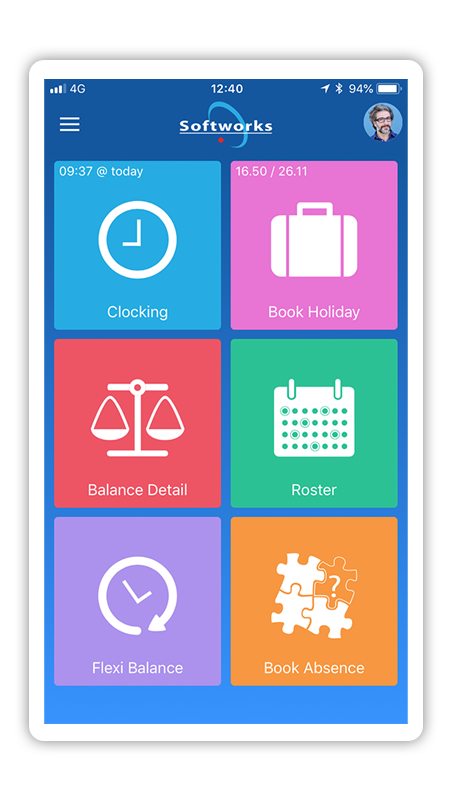
Enhancing Transparency and Efficiency
ESS significantly enhances transparency and efficiency within organizations. By empowering employees to manage their HR tasks directly:
- Transparency: ESS ensures that employees have access to accurate and up-to-date information regarding their work schedules, leave balances and benefits. This transparency builds trust and minimizes misunderstandings.
- Efficiency: Routine HR tasks, such as time tracking and leave requests, become more efficient and less prone to errors when handled through ESS. HR departments can focus on more strategic responsibilities, contributing to overall operational efficiency.
ESS not only simplifies HR processes but also fosters a sense of responsibility and ownership among employees. It aligns with the changing expectations of today’s workforce, where individuals increasingly seek autonomy and quick access to information.
Find out more: Softworks Employee Self-service (ESS)
The Benefits of Employee Self-Service
Empowering Employees to Manage HR Tasks
Employee Self-Service (ESS) empowers employees by allowing them to take control of their HR-related tasks independently. ESS enables employees to:
- Clock in and out
- Request leave
- Access work schedules
- Update personal information
This autonomy reduces their reliance on HR personnel and fosters a culture of responsibility and engagement.
Reducing Administrative Workload for HR Departments
ESS significantly reduces the administrative burden on HR departments. It automates routine tasks like data entry, time tracking, and leave requests. This automation allows HR professionals to focus on more strategic initiatives, such as talent development and workforce planning.
Improving Accuracy and Compliance with HR Policies
ESS enhances accuracy by reducing errors associated with manual data entry. It also includes built-in checks to ensure compliance with HR policies and labor laws. For example, leave requests can be automatically reviewed for policy adherence, reducing the risk of non-compliance.
Providing Real-time Access to Important Information
ESS provides instant access to critical HR information, including work schedules, leave balances, and compensation details. This accessibility eliminates the need for time-consuming inquiries and phone calls to HR, improving efficiency and reducing confusion.
Enhancing Employee Engagement and Satisfaction
ESS contributes to higher levels of employee engagement and job satisfaction. Employees appreciate the convenience and transparency offered by ESS, which can lead to a more positive perception of the organization as a whole.
In summary, Employee Self-Service (ESS) empowers employees, reduces administrative burdens, improves accuracy, and enhances engagement. It’s a strategic approach to HR management that empowers both employees and HR departments.
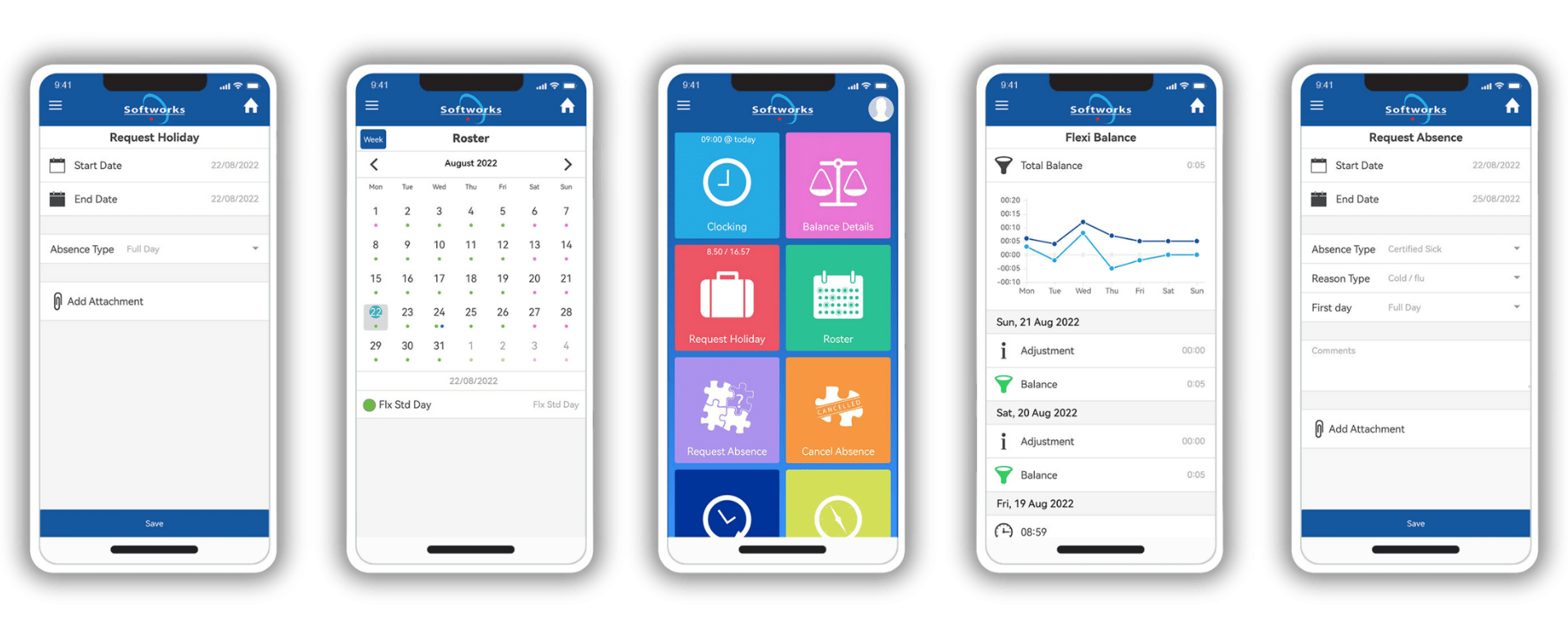
How Employee Self-Service Works
Employee Self-Service (ESS) simplifies HR management by placing the power directly in the hands of employees. Let’s explore the user experience of ESS from an employee’s perspective and walk through common ESS features:
User Experience of ESS
ESS offers employees a user-friendly interface accessible through desktop computers and mobile devices. The experience is designed to be intuitive and streamlined, allowing employees to easily navigate and perform HR-related tasks without the need for extensive training or assistance.
Common ESS Features
- Clocking In/Out and Time Tracking: ESS enables employees to record their working hours with ease. They can clock in and out through the platform, often with the added benefit of GPS location tracking for accuracy. This feature simplifies time tracking and ensures accurate records.
- Leave Request and Approval Processes: Employees can request different types of leave, such as vacation or sick leave, directly through ESS. Managers receive these requests electronically, making the approval process efficient and transparent. Employees can track the status of their leave requests and receive notifications when they are approved or denied.
- Accessing Work Schedules and Rosters: ESS provides employees with real-time access to their work schedules and rosters. This ensures that employees are always aware of their upcoming shifts, assignments, and any changes in their schedules. The ability to access this information at any time enhances planning and reduces scheduling conflicts.
- Viewing Benefits and Compensation Details: ESS allows employees to view detailed information about their benefits packages and compensation. This includes access to pay stubs, tax documents, and benefit enrolment information. Having these details readily available fosters transparency and helps employees make informed decisions about their financial well-being.
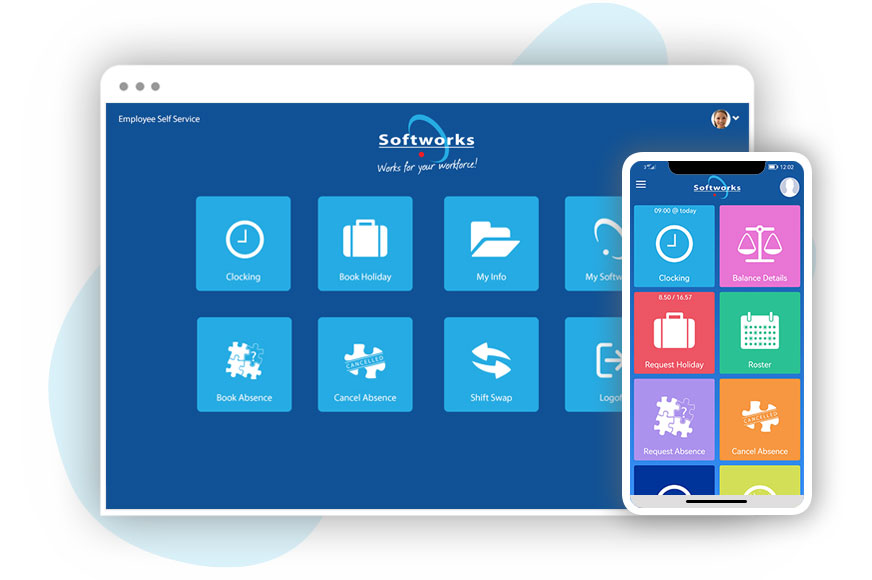
Fostering Employee Self-Sufficiency
ESS plays a crucial role in fostering employee self-sufficiency. By providing the tools and information employees need to manage their HR-related tasks independently, ESS reduces their reliance on HR personnel and administrative staff. This empowerment aligns with the changing expectations of today’s workforce, where individuals seek greater autonomy and control over their work-related information.
Furthermore, ESS encourages a sense of responsibility among employees, as they take charge of tasks like time tracking and leave requests. This increased ownership not only improves efficiency but also enhances employee engagement and satisfaction.
Find out more: Softworks Employee Self-service (ESS)
Employee Self-Service in a Mobile World
In today’s fast-paced and highly connected work environment, mobile accessibility has become paramount. Employee Self-Service (ESS) has embraced this trend, recognizing the importance of providing employees with the ability to access crucial HR functions on their smartphones and tablets.
Let’s delve into why mobile accessibility is crucial and how it benefits employees:
The Importance of Mobile Accessibility in Today’s Workforce
Mobile devices have become ubiquitous in our lives, and the modern workforce is no exception. Employees rely on their smartphones and tablets for a wide range of tasks, from communication to information access. With the increasing adoption of remote and flexible work arrangements, mobile accessibility ensures that employees can stay connected and productive regardless of their location.
The Role of Mobile Apps in ESS
Mobile apps play a pivotal role in ESS by extending its functionality to handheld devices. These apps are designed to provide a seamless and user-friendly experience, enabling employees to access critical HR functions on the go. Mobile ESS apps are typically available for both iOS and Android platforms, catering to a wide range of device preferences.
Benefits of Using ESS on Smartphones and Tablets
- Flexibility and Convenience: ESS mobile apps provide employees with the flexibility to manage HR tasks from anywhere at any time. Whether they need to clock in for work, request leave while on vacation, or check their work schedules during commutes, mobile accessibility ensures convenience.
- Real-time Updates: Employees benefit from real-time access to HR information. They can instantly view changes in their schedules, check leave balances, and receive notifications about leave approvals or policy updates. This ensures they are always up-to-date and well-informed.
- Efficiency: Mobile ESS apps streamline HR processes by allowing employees to complete tasks quickly. For example, they can submit expense reports, access pay stubs, and update personal information with just a few taps on their mobile devices. This efficiency saves time for both employees and HR departments.
- Engagement and Empowerment: Mobile accessibility enhances employee engagement by giving them control over their HR-related tasks. It fosters a sense of ownership and responsibility, aligning with the expectations of a more empowered workforce.
- Remote Work Enablement: In an era of remote work, mobile ESS becomes even more critical. Employees working from home or while traveling can seamlessly manage their HR needs without the need for access to a desktop computer.
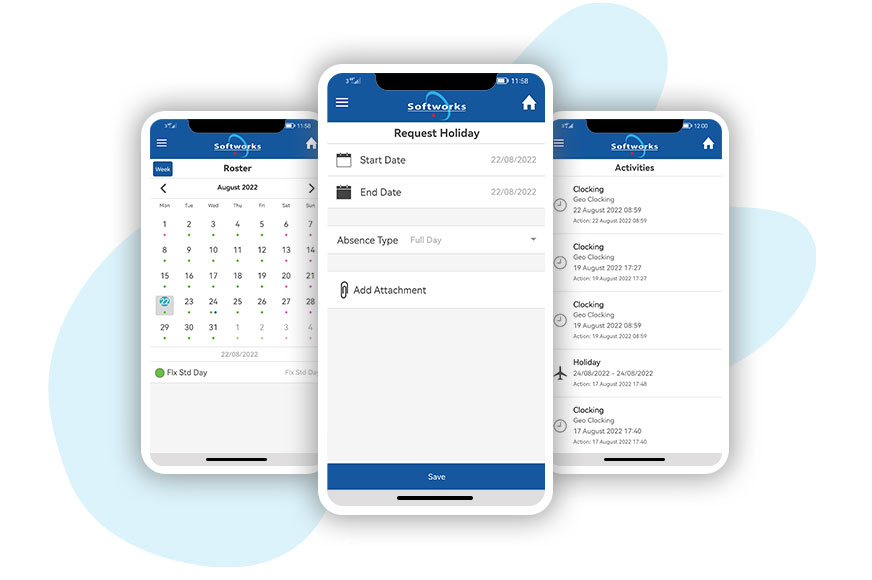
Mobile ESS ensures that employees are not tied to their desks for HR-related activities. Instead, they have the freedom and flexibility to manage their work-related tasks in a way that best suits their lifestyles and work arrangements. This mobile empowerment contributes to a more agile and engaged workforce, ultimately benefiting both employees and organizations.
Find out more: Softworks Employee Self-service (ESS)
The Future of Employee Self-Service
Employee Self-Service (ESS) is an ever-evolving field that continually adapts to the changing landscape of HR and technology. As organizations strive for greater efficiency and employee empowerment, ESS solutions are expected to undergo several transformative changes in the coming years:
Emerging Trends and Innovations in ESS
- Artificial Intelligence (AI) and Machine Learning: ESS platforms are likely to integrate AI and machine learning capabilities. These technologies can provide predictive insights, such as suggesting optimal work schedules, identifying potential HR issues, and even automating routine HR tasks like document processing and data validation.
- Personalization: ESS solutions are moving towards greater personalization. They will tailor the user experience to individual employee preferences, ensuring that employees receive information and notifications relevant to their roles and needs.
- Voice and Chat Interfaces: Voice-activated and chat-based ESS interfaces will become more common. Employees will interact with HR systems using natural language, making HR tasks even more accessible and intuitive.
- Data Analytics: ESS will harness the power of data analytics to provide deeper insights into workforce trends. HR departments will use these insights to make informed decisions about talent management, performance optimization, and employee engagement strategies.
Potential Developments in ESS Solutions
- Enhanced Mobility: Mobile accessibility will continue to be a focal point for ESS development. ESS apps will become more sophisticated, offering a wider range of functions and a seamless user experience, even on small screens.
- Virtual Reality (VR) and Augmented Reality (AR): VR and AR technologies may find their way into ESS for training and onboarding purposes. New hires could use VR to explore virtual workplaces, and AR could guide employees through tasks.
- Blockchain for Security: Blockchain technology could enhance the security of ESS systems by ensuring the integrity of HR data. This could be particularly important for sensitive information such as payroll and benefits.
- Integration with Internet of Things (IoT): ESS solutions may integrate with IoT devices, allowing employees to manage aspects of their work environment, such as office climate control and lighting, through the same platform.
Staying Ahead of HR Technology Trends
It’s imperative for organizations to stay ahead of HR technology trends, including those related to ESS. The benefits of doing so are numerous:
- Competitive Advantage: Early adopters of cutting-edge ESS solutions can gain a competitive advantage by improving efficiency, enhancing the employee experience, and attracting top talent.
- Compliance and Security: Staying current with HR technology trends ensures that organizations remain compliant with changing regulations and secure against emerging threats.
- Employee Engagement: Forward-thinking ESS solutions can drive employee engagement and satisfaction, leading to higher productivity and retention rates.
- Efficiency: Leveraging the latest technology trends in ESS can streamline HR processes, reduce administrative burdens, and free HR teams to focus on strategic initiatives.
In conclusion, the future of Employee Self-Service holds exciting possibilities, with AI, personalization, data analytics, and emerging technologies playing pivotal roles. Organizations that stay ahead of HR technology trends and invest in innovative ESS solutions stand to benefit from a more efficient, engaged, and competitive workforce.
Find out more: Softworks Employee Self-service (ESS)
Softworks ESS: Tailored Solutions for Empowering Your Workforce
Softworks ESS is a comprehensive Employee Self-Service (ESS) solution designed to empower your workforce and streamline HR management. Building upon the principles and benefits discussed earlier, Softworks ESS offers a robust set of features and advantages tailored to meet the unique needs of organizations.
Alignment with Principles and Benefits
Softworks ESS aligns seamlessly with the core principles and benefits of ESS:
- Empowering Employees: Softworks ESS empowers employees by providing them with the tools and information they need to manage HR tasks independently. Whether it’s clocking in/out, requesting leave, or accessing critical HR information, Softworks ESS fosters self-sufficiency.
- Reducing Administrative Workload: By automating routine HR tasks, Softworks ESS significantly reduces the administrative workload for HR departments. This efficiency allows HR professionals to focus on strategic initiatives and higher-value tasks.
- Improving Accuracy and Compliance: Softworks ESS includes built-in checks and validations to ensure accuracy and compliance with HR policies. This reduces errors and ensures that your organization adheres to regulatory requirements.
- Providing Real-time Access: Softworks ESS provides real-time access to important HR information, ensuring that employees are always up-to-date with their work-related details.
- Enhancing Engagement and Satisfaction: With its user-friendly interface and mobile accessibility, Softworks ESS enhances employee engagement and satisfaction. It provides a convenient and transparent HR experience, leading to improved job satisfaction.
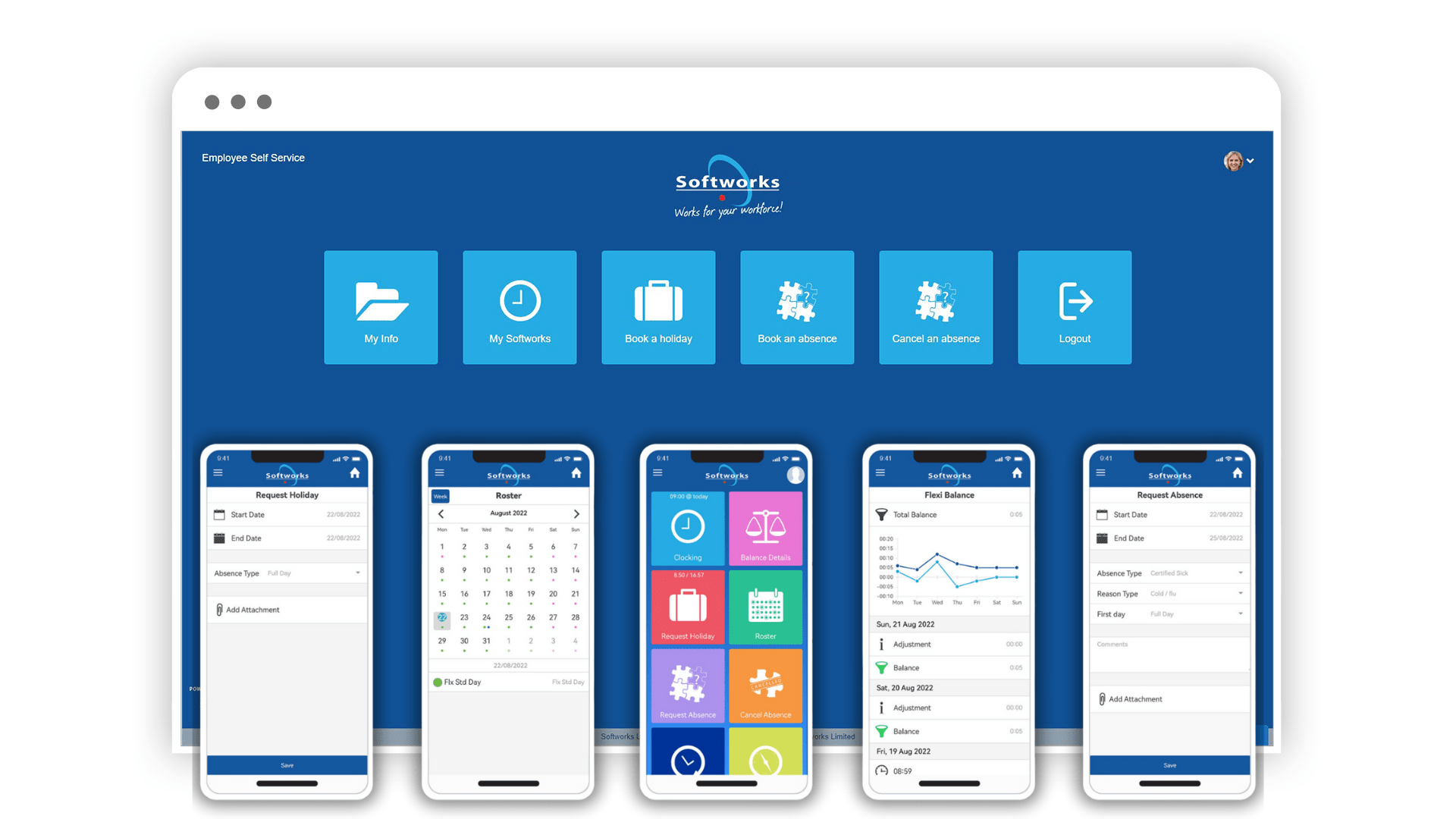
Specific Features and Advantages of Softworks ESS
- Comprehensive Time and Attendance Management: Softworks ESS allows employees to clock in/out easily, track working hours, and access their attendance history. The inclusion of GPS location tracking ensures accuracy in time tracking.
- Efficient Leave Request and Approval: Softworks ESS streamlines the leave request and approval process. Employees can request leave through the platform, and managers can review and approve requests electronically, enhancing efficiency and transparency.
- User-friendly Mobile App: Softworks ESS offers a user-friendly mobile app, enabling employees to manage HR tasks conveniently from their smartphones and tablets. This extends the benefits of ESS to the mobile workforce.
- Integration Capabilities: Softworks ESS seamlessly integrates with other HR and payroll systems, ensuring data accuracy and enabling real-time information access.
- Customization: Softworks ESS can be tailored to meet the specific needs of your organization, making it a flexible solution that adapts to your unique HR requirements.
In summary, Softworks ESS is a powerful and flexible ESS solution that aligns with the core principles and benefits of ESS. It empowers employees, reduces administrative burdens, improves accuracy, and enhances engagement. With its comprehensive features and user-friendly interface, Softworks ESS is the ideal choice for organizations seeking to modernize their HR processes and create a more efficient and engaged workforce.
Find out more: Softworks Employee Self-service (ESS)
Conclusion
In today’s rapidly changing organizational landscape, Employee Self-Service (ESS) has become a common phrase, symbolizing a transformative shift in HR management. ESS places the power of HR tasks directly in the hands of employees, streamlining processes, reducing administrative burdens, and fostering a culture of autonomy.
ESS empowers employees by providing easy access to HR functions like time tracking, leave requests, and work schedules. It simplifies HR processes, enhancing transparency, reducing errors, and promoting engagement.
Throughout this exploration, we’ve witnessed the evolution of ESS, its core functionalities, benefits, and the critical role of mobile accessibility. Looking ahead, ESS is poised for further innovation, emphasizing the need for organizations to stay ahead of HR technology trends.
In conclusion, ESS is a strategic approach that empowers both employees and HR departments, creating a more efficient and engaged workforce. Softworks ESS offers tailored solutions that align seamlessly with these principles, making it an ideal choice for organizations seeking modernized HR processes and an empowered workforce. As ESS continues to evolve, it will shape the future of HR and workforce management.
Request a free Demo!
Take the first step towards a complete workforce management solution. Talk to us today!
About Tomislav Rucevic
Tomislav Rucevic, an SEO Specialist at Softworks, stands out as more than just a marketer. He’s a fervent writer and influential thinker passionate about Workforce Management, HR, and work-life dynamics. Holding an MBA in Marketing, Tomislav excels in creating content that delves into the complexities of the modern workplace.
His dedication to writing on these topics is highlighted in his MBA thesis, which examined the link between Employee Motivation and Quality Improvement. At Softworks, he expertly merges his SEO skills with his writing prowess, contributing to the company’s digital success and advancing discussions on enhancing work environments and achieving work-life balance.
